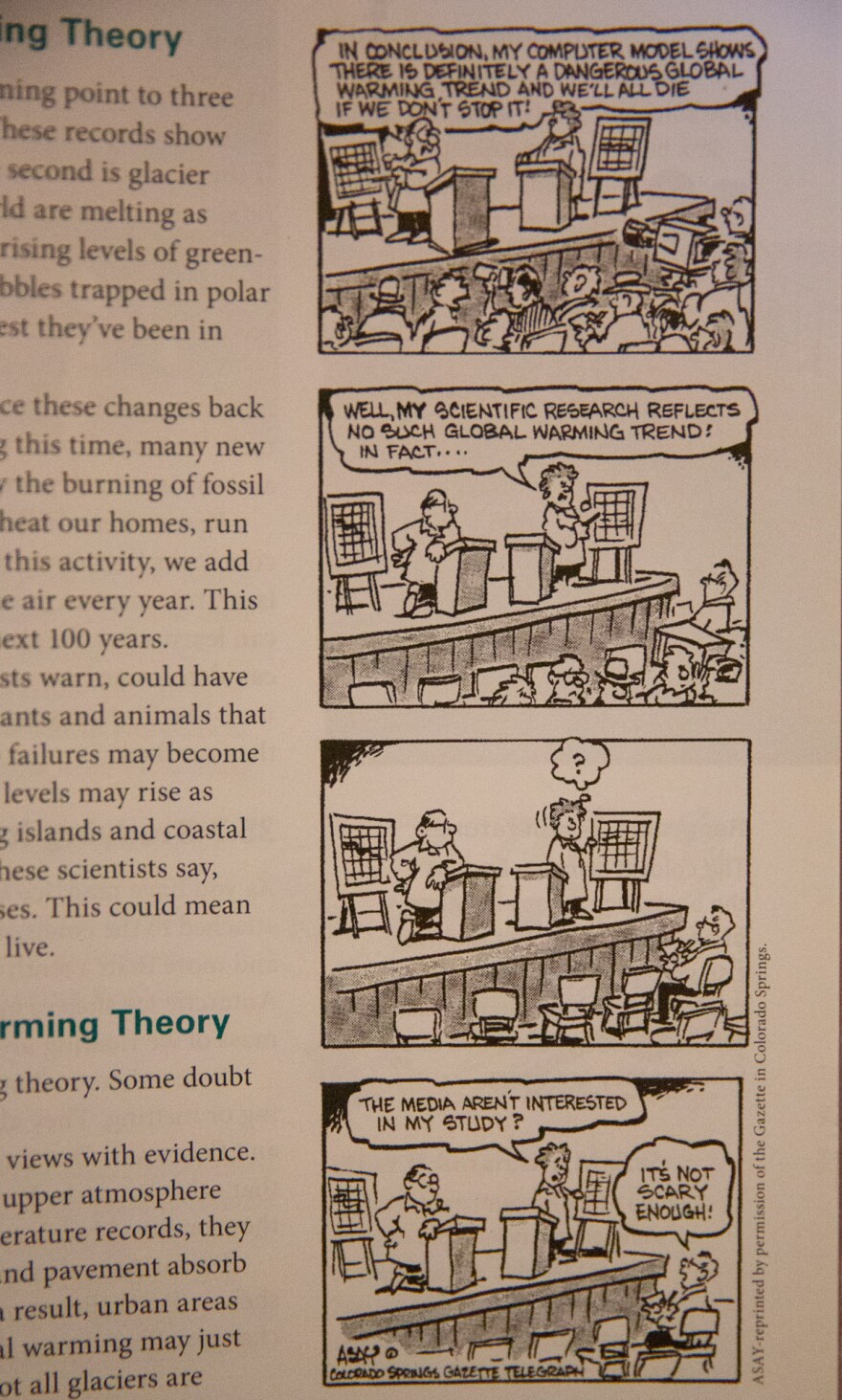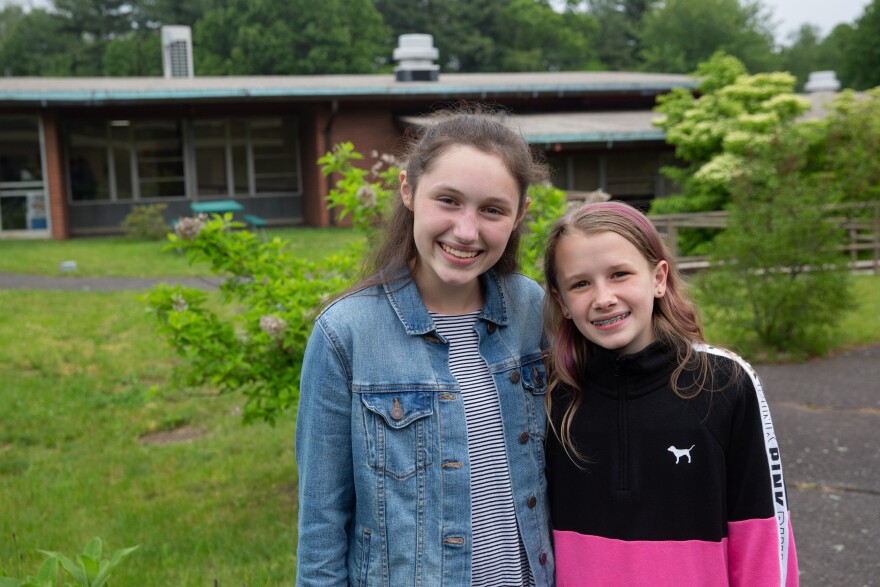A textbook being used in Hartford middle schools gives equal weight to an argument against climate change, despite the vast majority of scientists who say the planet is warming and human activity is a contributing factor.
Joshua Blanchfield teaches social studies at a Hartford magnet school, and he tweeted out photos of his textbook after he found its last pages included information about climate change that startled him.
"I was pretty shocked by how skewed it was," he said, adding that it presented students with a false equivalency, giving equal weight to climate science as it did to climate change denial.
There are a few things he said are misleading. First, there's a drawing of two people in red parkas, they're supposed to be climate researchers.

The drawing's problematic, Blanchfield said, because it presents the debate as if each side has equal scientific value.
Other pages in the book offer the same space to the science as it does to the doubters. There's also a cartoon that Blanchfield said mocks research into global warming.
"I was shocked at how antiquated the thinking was, and it presented itself almost as talking points from InfoWars or something like that," Blanchfield said, "and how that was presented as rational and of equal value."

Hartford school officials said they’re no longer using this book, and that all middle school teachers have gotten a new textbook. But Blanchfield said he never got the new one, and at least one other middle school teacher in Hartford is still using the older book, also, Connecticut Public Radio confirmed.
The state of Connecticut requires school districts to use the Next Generation Science standards, which include anthropogenic -- or manmade -- climate change as a core topic of instruction. But schools aren't required to teach it -- it's merely a guideline.
And that upsets Farmington middle school students Leah Glaspey and Cara Szczepanski. They had an idea for a podcast about climate change, but as they researched it, they found out that they hadn't been taught much about it, at all.
"Before I did research on this, I just thought: ice melting, polar bears,"Szczepanski said. "That's like literally all I knew..."
But then she started reading about it.
"I was like, 'Is this even real?' Like, why don't I know about it?," she said. "And I didn't know anything, and I should have."
She initially thought there was a debate about whether climate change is happening. But she learned quickly that’s not the case. Glaspey added that it's important for schools to teach climate change, even though it may be difficult.
"We need to learn these things," Glaspey saidl. "It might be depressing, but it's probably gonna be even more depressing if we have to watch our friends die at the hands of climate change."

Farmington now teaches the subject in fifth grade. Glaspey and Szczepanski say they're interested to talk to some fifth graders to see what they know about it.
The state's House of Representatives recently approved a bill that would require districts to teach climate change in high school. But it's unclear if the bill will make it to a vote in the Senate. The session ends this Wednesday.





